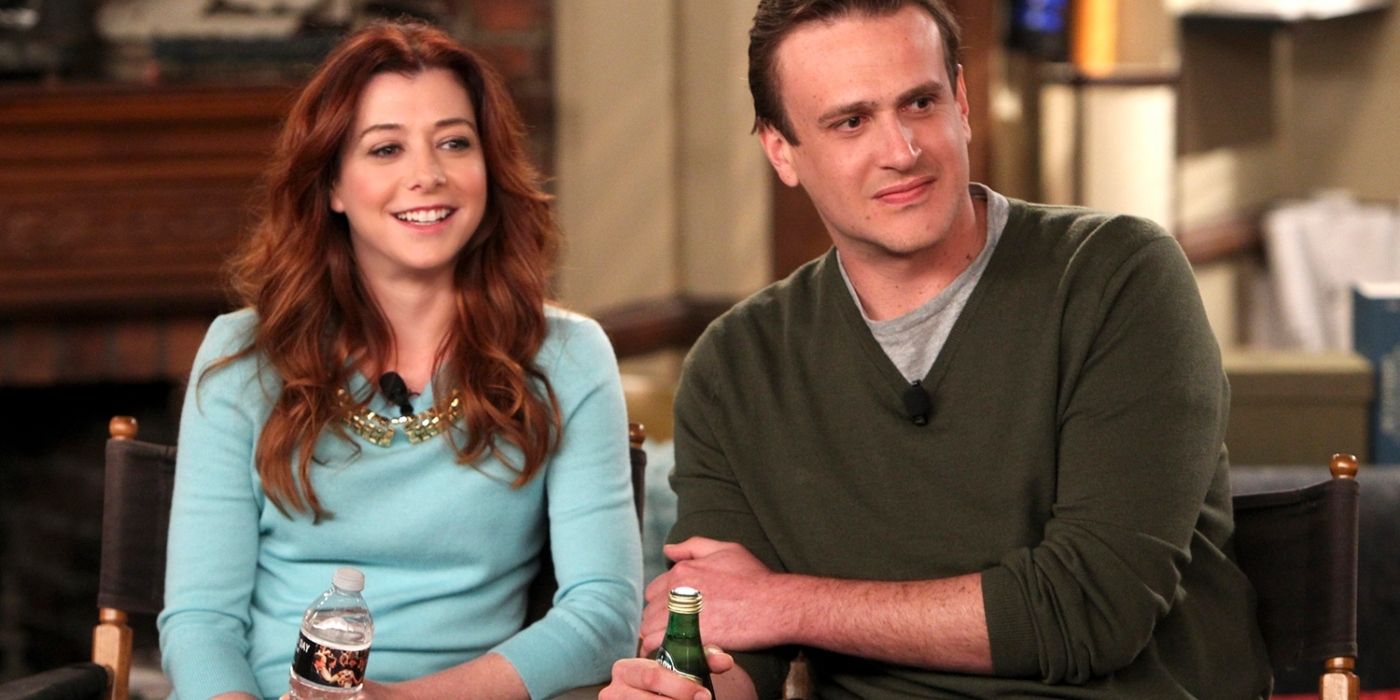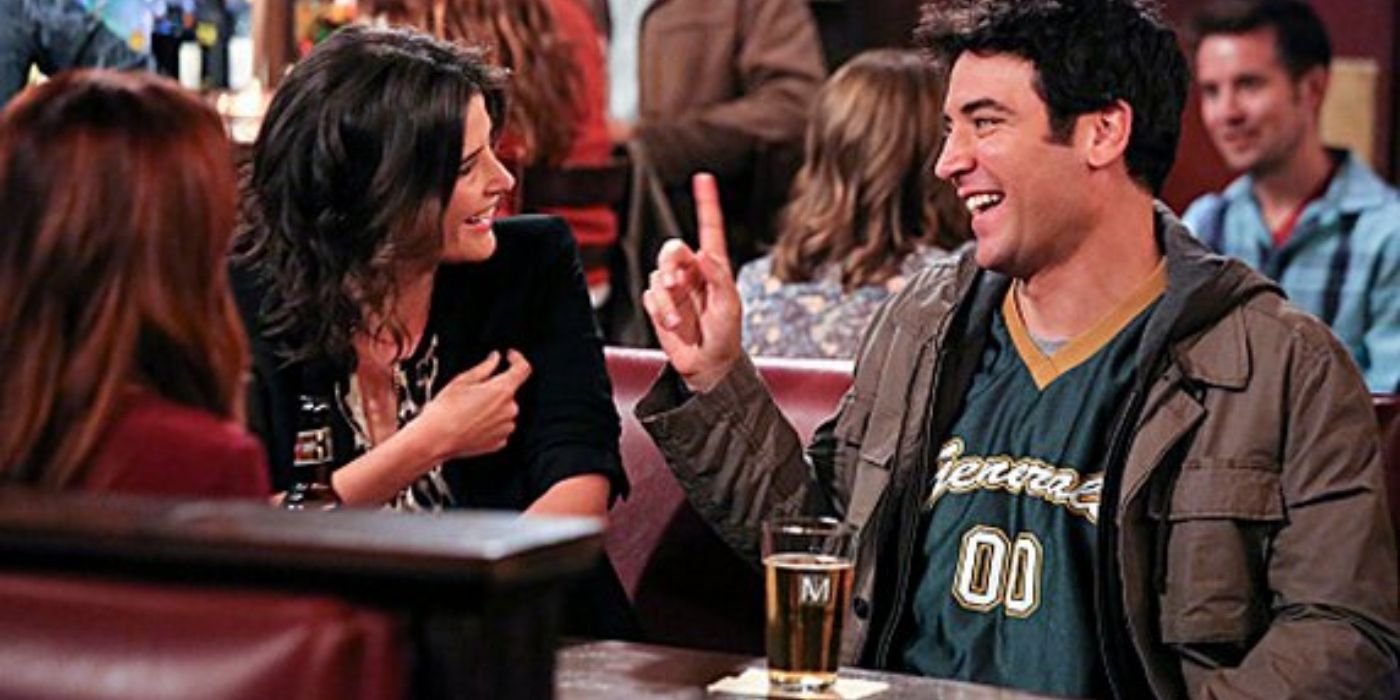
Decoding How I Met Your Mother: Unraveling the Olive Theory

Discover the intriguing concept of the Olive Theory on How I Met Your Mother Unveiling the perfect balance and compatibility between two individuals, this theory foreshadowed the ultimate fate of Ted and Robin's relationship
Article Overview
The olive theory is a popular concept from How I Met Your Mother that represents compatibility in relationships.
Ted's initial belief in the olive theory was centered around the idea of perfect balance in a relationship. However, as time went on, he discovered that it truly revolved around love and the dedication to making one's partner happy.
In a captivating manner, the olive theory hinted at Ted and Robin's eventual reunion in the series finale, displaying that their love story was far from over, even after their prior separation.
In the sitcom How I Met Your Mother, Ted Mosby, portrayed by Josh Radnor, embarks on a quest to find his soulmate. At the start of the series, he introduces the "olive theory" as a way to define ideal relationships. Set in New York, the comedy revolves around Ted's friendships and their regular gatherings at MacLaren's, their favorite pub, where they discuss their lives. While each character goes through their own romantic endeavors, the central focus of the show lies in Ted recounting to his children the story of how he fell in love with Tracy McConnell, portrayed by Cristin Milioti.
Ted, a firm believer in true love, views each person he dates as a potential lifelong partner. The relationships of both Ted and his closest friends serve as the foundation for the narrative he shares with his children. Early on in the series, he idolizes Lily Aldrin (Alyson Hannigan) and Marshall Eriksen (Jason Segel) due to their enduring and passionate romance. Ted attributes their happiness to the olive theory, assuming that Lily and Marshall's relationship in How I Met Your Mother is flawless. However, this notion eventually challenges his perception of love.
The Olive Theory Is Meant To Show How Compatible Two People Are
The olive theory is introduced in the first episode of How I Met Your Mother and is referenced multiple times throughout the series. Since then, it has gained significant popularity in pop culture, particularly on platforms like TikTok where users share their own first date stories and how they relate to the theory. Essentially, the olive theory is a way to determine compatibility between two individuals.
Initially, it is presented as one person in a relationship disliking olives while the other enjoys them. This might suggest the concept of opposites attracting or two people completing each other. However, How I Met Your Mother takes a different approach to the olive theory, as Barney Stinson (played by Neil Patrick Harris) unveils a significant revelation about it.
Ted is aware that Marshall despises olives while Lily adores them. Whenever olives are present in their meals, Marshall willingly hands them over to Lily. However, Barney later enlightens Ted by revealing that Marshall actually enjoys olives himself, but chooses to give them to Lily because he is well aware of her deep affection for them. Initially portrayed as a compatibility factor, the olive theory actually signifies the immense love within their relationship. Marshall sacrifices his love for olives for the sake of Lily's happiness, showcasing his devotion to her. Enjoy all 9 seasons of How I Met Your Mother on Hulu.
Ted Believed The Olive Theory Demonstrated Perfect Balance In A Relationship
In the first episode of HIMYM, the olive theory is introduced, suggesting that Lily's love for olives and Marshall's dislike for them makes them compatible. Ted is intrigued by this concept as he often seeks to find logic in love. He hopes that the olive theory proves true, as it aligns with his rational approach to relationships - testing his attraction and applying the theory on dates, for example.
However, the olive theory exposes Ted's naivety and his tendency to believe in something without considering all the facts or being realistic. While Ted's optimism is one of his best traits, he sometimes fails to see reality. In the pilot episode, Barney reveals that Marshall doesn't actually hate olives; in fact, both Lily and Marshall enjoy them. Surprisingly, Lily is unfazed by this revelation and doesn't see it as contradicting the olive theory. This early story serves as an important lesson for Ted, reminding him that beyond initial attraction and chemistry, both partners must invest time and effort for a relationship to thrive.
The Olive Theory Foreshadowed Ted & Robin Ending Up Together
In the TV show "How I Met Your Mother," a significant moment occurs when Ted learns that Robin has changed her opinion about olives. Previously disliking them, she now finds contentment in eating them. This change holds great importance for Ted, as it suggests that Robin's mind may also alter regarding their relationship. He takes solace in the fact that her viewpoint has shifted. The olive theory foreshadows the possibility of Ted and Robin getting back together in the series finale. However, before this can happen, Robin opens herself up to Barney, causing Ted's heartbreak. This transformation in Robin's olive preference takes place in Season 9, Episode 9, called "Platonish."
Despite their breakup due to differing desires regarding marriage and parenthood, How I Met Your Mother consistently maintains Ted's unwavering belief that he and Robin will eventually reunite. Although the time may not be appropriate at present, Ted understands that their love story remains incomplete. Initially, Ted believed that their contrasting preferences for olives symbolized their compatibility, but he now relinquishes this notion and acknowledges the possibility of their future happiness together.
Editor's P/S
The Olive Theory, a concept introduced in the popular sitcom How I Met Your Mother, offers a unique perspective on compatibility in relationships. Initially, it is presented as one person in a relationship disliking olives while the other enjoys them, suggesting the idea of opposites attracting or two people completing each other. However, the show takes a different approach, revealing that the true essence of the olive theory lies in sacrifice and the dedication to making one's partner happy.
This is beautifully demonstrated through the relationship between Marshall and Lily. Despite Marshall's love for olives, he willingly gives them up to Lily, knowing how much she adores them. This act of selflessness and compromise highlights the depth of their love and commitment to each other's happiness. It shows that compatibility is not just about shared interests or preferences, but about understanding and prioritizing one another's needs and desires.












